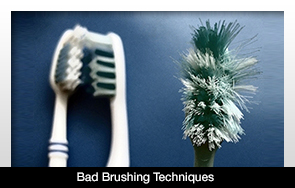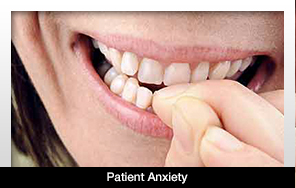Written by Dentistry TodayThursday, 31 May 2012 15:13

Brushing in the correct manner is just as important as brushing enough.
Many people brush their teeth too hard, and long-term problems could result. When brushing too hard, the gums can start to recede and make teeth more sensitive.
Teeth sensitivity from brushing too hard, among other reasons, is a common problem. Sugary drinks and teeth bleaching can also wear down enamel, leaving open the possibility of tooth sensitivity.
When people complain about sensitive teeth, their brushing technique is often called into question. Using a softer brush is the first step toward curbing the issue. Applying less pressure can be better then brushing one’s teeth firmly in many cases.
Informing people about the correct way to brush their teeth is the best step to prevent tooth sensitivity stemming from brushing too hard. After experiencing the initial sensitivity, seeing the dentist is the best option. If someone is encountering sensitivity to hot/cold drinks or food, the issue could be resulting from something other than poor brushing technique.

